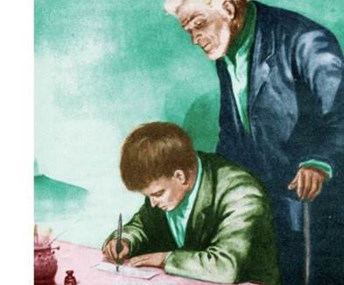The master said: "It is true. All the other senses are finer in them, because, since they must replace, among them, that of sight, they are more and better exercised than they are in the case of those who see. In the morning, in the dormitory, one asks another, 'Is the sun shining?' and the one who is the most alert in dressing runs instantly into the yard, and flourishes his hands in the air, to find out whether there is any warmth of the sun perceptible, and then he runs to communicate the good news, 'The sun is shining!' From the voice of a person they obtain an idea of his height. We judge of a man's soul by his eyes; they, by his voice. They remember intonations and accents for years. They perceive if there is more than one person in a room, even if only one speaks, and the rest remain motionless. They know by their touch whether a spoon is more or less polished. Little girls distinguish dyed wools from that which is of the natural color. As they walk two and two along the streets, they recognize nearly all the shops by their odors, even those in which we perceive no odor. They spin top, and by listening to its humming they go straight to it and pick it up without any mistake. They trundle hoop, play at ninepins, jump the rope, build little houses of stones, pick violets as though they saw them, make mats and baskets, weaving together straw of various colors rapidly and well--to such a degree is their sense of touch skilled. The sense of touch is their sight. One of their greatest pleasures is to handle, to grasp, to guess the forms of things by feeling them. It is affecting to see them when they are taken to the Industrial Museum, where they are allowed to handle whatever they please, and to observe with what eagerness they fling themselves on geometrical bodies, on little models of houses, on instruments; with what joy they feel over and rub and turn everything about in their hands, in order to see how it is made. They call this seeing!"













